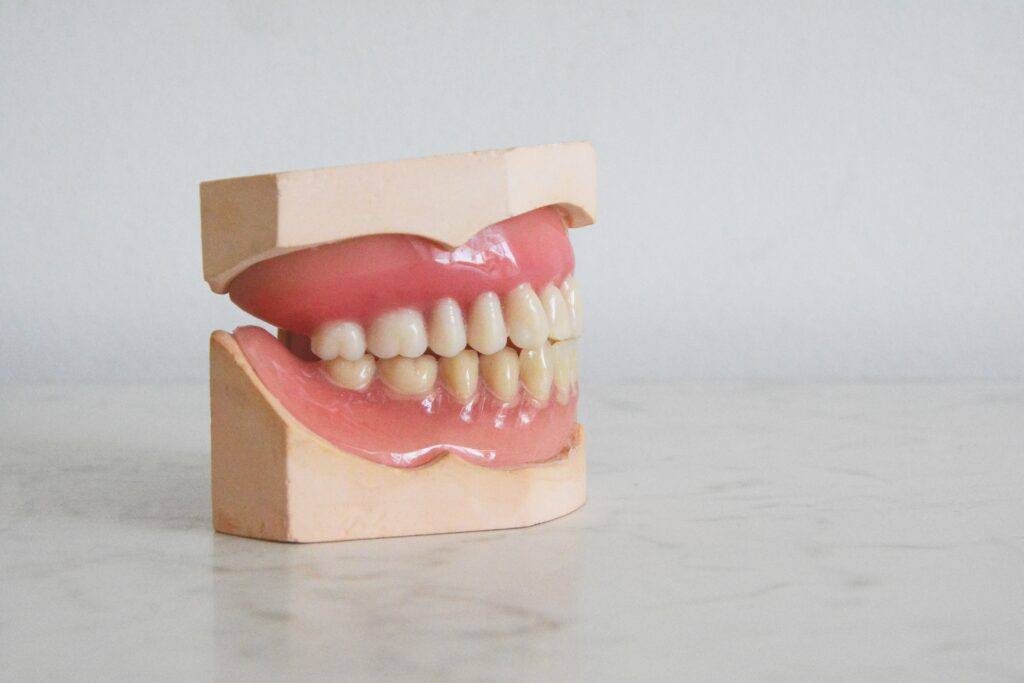
Do your teeth constantly ache? Are you finding it difficult to chew your food? Do your gums bleed when you brush your teeth? Do you frequently get mouth sores? Are some of your molars cracking, resulting in yet another painful extraction and another gaping hole in your mouth?
If you’ve answered yes to some or even all of these questions, you are not alone. The sad fact of the matter is that as you age, your teeth can get worn down to the point where they crack or break.
Those of you who’ve suffered more than one broken tooth that resulted in extraction have two choices for maintaining strong, healthy jaw bones. You can either invest in expensive dental implants. Or you can go with the less expensive but natural looking dentures.
But how much will dentures run you?
Says Yukon Dentistry, a denturist in Whitehorse, Canada, the costs of dentures can very widely. In general however, here’s what you can expect to pay. For partial dentures, the cost will be around $1,800. Full dentures will also cost $1,800. Immediately dentures will run you $1,900. Keep in mind every situation is unique, but if you work with the dentist to properly plan your procedure, your dentures can be completed in as little as one day.
But before you decide it’s time to get a set of dentures or shell out a down payment for implants, what are the things you should be looking for in order to know that your teeth are in trouble? According to a recent health report, most dental problems can be entirely avoided so long as you brush twice daily, floss on a daily basis, engage in twice annual dental cleanings/checkups, plus eat in a healthy, low sugar diet.
It’s also important to educate yourself about common dental problems and what can cause them. That said, here are some of the most common dental problems that should tell you your teeth are in trouble.
Halitosis
Halitosis, or bad breath, is embarrassing, especially if you’re on a date. The experts say that a dental condition is the blame in about 85 percent of people with chronic bad breath. These can include cavities, oral cancer, gum disease, bacteria thriving on the tongue, and dry mouth.
Use mouthwash to mask halitosis. But if your bad breath is persistent, you need to see your dentist right away.
Tooth Decay
Said to be one of the most common health problems in the U.S., tooth decay, or cavities, is second only to the common cold. Your teeth begin to form craterous cavities when plaque combines with the sugars in the foods and drinks you consume. The combination is said to produce acids that eat away at your tooth enamel.
Cavities can occur at any age, meaning they’re not just a problem that affect’s children. The aging process and normal enamel erosion can also cause tooth decay. So can illness and medication.
The best way to avoid cavities is to follow the basic rules of thumb: brush twice per day or after every meal, floss once per day, and get regular cleanings. You also need to eat healthy foods that are low on carbohydrates and processed sugar.
Sensitive Teeth
Said to affect millions of people not only in the U.S. but around the world, tooth sensitivity involves discomfort and/or pain from cold air, ice cream, hot and cold drinks, sweets, and more. In a word, sensitive teeth make it a pain-filled experience to brush and floss. However, sensitive teeth can be treated by a dentist.
Hypersensitivity can be a sign of an abscessed or cracked tooth (many teeth develop micro-cracks over time). These conditions need to be treated or you can risk losing the tooth, or even developing an infection in your jawbone.
Tooth Erosion
Common among aging women and men, tooth erosion is the gradual loss of tooth structure. The major cause of erosion is years of acid attacking the enamel. The symptoms of tooth erosion are sensitive teeth or even cracking which can lead to tooth extraction.
While tooth erosion is common, it can be prevented by brushing twice daily, flossing, gargling with mouthwash, and eating a proper diet.
Mouth Cancer
Oral or mouth cancer is nothing to fool around with. It is a deadly disease. Full stop. It can affect millions of people usually after the age of 40. It is so common, experts state that someone in the U.S. alone will die from mouth cancer every hour.
It is treatable, but you must catch it in its early stages. Common causes of the cancer include smoking and/or chewing tobacco, alcohol use, and human papillomavirus or HPV.
Symptoms include lumps, rough areas in the mouth, sores, a change in your bite, and difficulty moving your jaw and chewing.
Leave a Reply